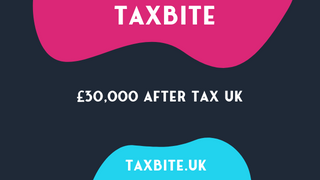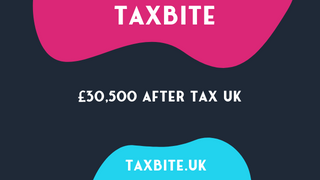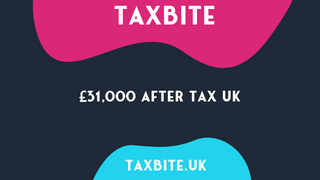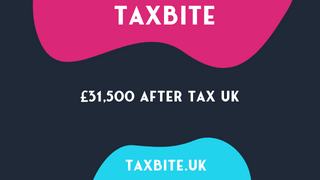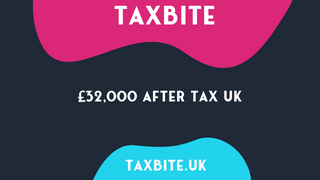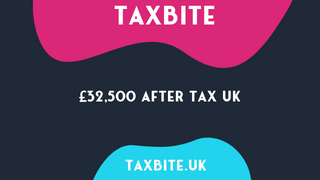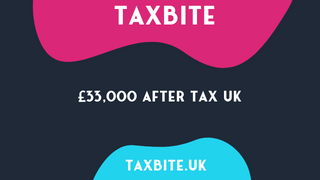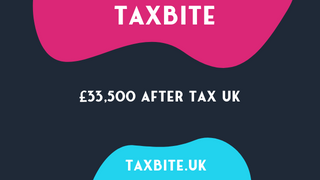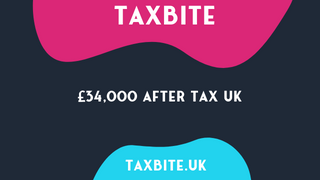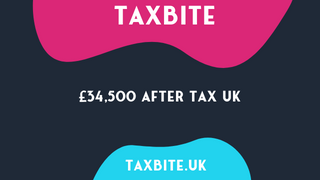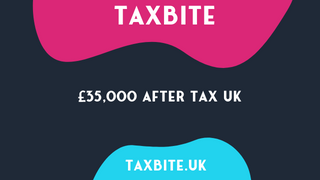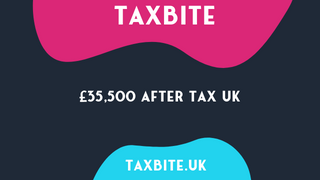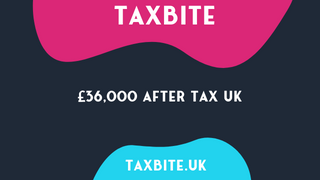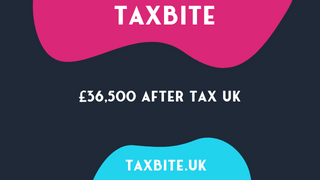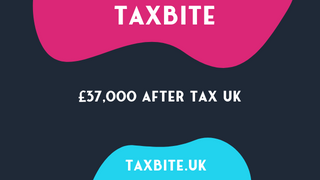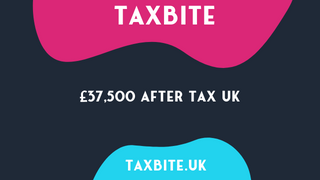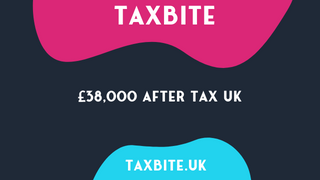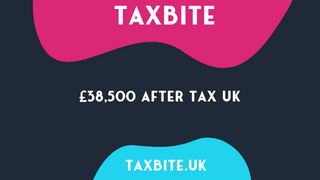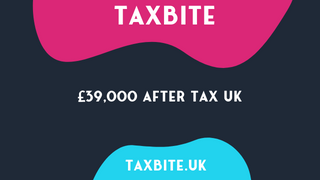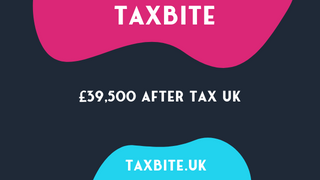If you’re living and working in the UK, it is mandatory for you to pay income tax and national insurance. However, this section will help you understand the basics of these taxes. We’ll explain the differences between income tax and national insurance and how they affect your take-home pay. With this knowledge, you’ll be well-equipped to handle your finances when it comes to taxes.
Income tax and national insurance are two crucial types of taxation. Income tax is paid towards public services, while NICs fund social security benefits.
However, they differ. Income tax rates vary based on income level and other factors. National insurance contributions also differ according to employment status, earnings, and age.
It is important to understand the distinction between income tax and NICs. This will help with budgeting and future planning.
For example, income tax rates depend on total taxable income, age, and allowances, while NICs depend on employment status and age group.
In conclusion, understanding the basics of income tax and national insurance is essential for managing finances effectively.
Income Tax and National Insurance – two systems most of us pay in the UK. It’s vital to get the differences, to know how much you owe and your take-home pay.
Table time! Income Tax is a tax on earnings. National Insurance pays for state benefits like healthcare and pensions. Income Tax is based on total annual earnings. National Insurance is taken from each pay.
Both have different rates, based on earnings and circumstances. E.g. those earning £50,000 or more pay a higher rate of Income Tax than someone earning £20,000. National Insurance is charged at a fixed rate until a certain limit.
Some people may be exempt from paying National Insurance based on job type or age. But, anyone earning above a specific limit will pay Income Tax.
Pro Tip: Check your payslips regularly, to make sure you’re taxed right for your circumstances.
£31,000 may seem OK, but factor in Income Tax and National Insurance to get your real take-home pay. Get the differences between them, to plan finances and make sure you’re not paying too much or too little.
Earning £31,000 per year can have a significant impact on your finances. Do you know exactly how it will affect your take-home pay? In this section, we will provide an overview of the impact of earning £31,000 and the factors that could affect how much you take home each month.
On an annual basis, an individual earning £31,000 will have a gross monthly income of £2,583.33, assuming they are paid monthly. However, their take-home pay will be affected by various factors, including income tax, national insurance contributions, and any applicable pension contributions. It is important to understand how these factors can impact your overall financial stability.
Let’s dive deeper into the details!
Earning £31,000 annually can have a huge influence on one’s net income due to income tax and national insurance deductions. Knowledge of these two topics is essential as they both affect the amount of money received. Factors, like tax code, pension contributions, benefits, and allowances, all have an effect on take-home pay. Calculating income tax and national insurance can be done with the aid of tax calculators which take into account the taxable income and other relevant information. This determines the actual take-home pay.
When earning extra income on top of current earnings, it’s important to think about the marginal tax rates, as this affects take-home pay. Maximizing take-home pay involves exploring strategies such as optimizing tax codes, benefits, and managing deductions.
Pro tip: Knowing the current government policies related to taxes and national insurance contributions can help individuals manage their finances better when earning £31,000 each year.
In conclusion, understanding the effects of earning £31,000 on take-home pay involves looking into multiple factors like income tax, national insurance, tax codes, benefits, and deductions. By staying informed and utilizing applicable information and tools, individuals can maximize their take-home pay and manage their finances more efficiently.
Your take-home money after a £31,000 annual income can vary. Firstly, your tax code depends on your personal allowance and salary. Pension contributions, student loan repayments, class 1 and 4 NICs, and other deductions can also reduce your pay.
Multiple jobs, benefits, and bonuses could affect your money too. So, it’s good to track them and use tax allowances, like the marriage allowance, for better results. Keeping track of expenses, such as travel costs related to work, could help you get back taxes.
All these factors should be kept in mind when managing finances with a £31,000 salary. To maximize your take-home pay, plan accordingly considering all the factors that affect it.
In this section, we will explain how to calculate Income Tax and National Insurance for earnings of £31,000 in 2023. We will discuss the various types of tax calculators available and the steps you need to take to ensure that you are paying the correct amount. Let’s get started!
Tax calculators are a helpful tool for individuals to figure out their taxable income, deductions, and National Insurance contributions. The reference data provides info on the features and types of the tax calculators used to calculate Income Tax and National Insurance for people earning £31,000 a year.
The table for “Features and Types of Tax Calculators” includes columns for Calculation Method, Accuracy Level, User-Friendly Interface, Cost or Free Availability, and Compatibility with Devices or Operating Systems.
These calculators use methods such as PAYE, P60, and Self-Assessment Tax Return to compute taxes. The accuracy level varies from basic to advanced, based on user preferences. User-friendly interfaces are essential for smooth tax computation.
The cost of the calculators differs with type. Some are free, and some need subscriptions or fees. It’s important to check compatibility with various devices or operating systems such as mobiles, tablets, or laptops. Comparing features is advised before making a choice.
Tax calculators help individuals plan their finances accurately by calculating their take-home pay after deductions. It also helps taxpayers to gain benefits like claiming back overpaid taxes or getting qualified advantages.
So why not let tax calculators do the work for you? Upgrade your tax game and select the right tax calculator with all the features you need.
Calculating income tax and National Insurance can be tough. But it’s an important part of managing finances. Factors like taxable income, tax code and benefits all have an effect. Know the steps to make sure you calculate deductions correctly.
Use up-to-date software and be up-to-date on rules and regulations to get accurate figures. The HM Revenue & Customs website has info about income tax and NICs, updates on taxation treatments during COVID-19 and instructions for avoiding common errors for self-assessment tax returns and expats.
Say goodbye to half your paycheck and say hello to reality – accurate deductions for income tax and National Insurance.
Did you know that your net pay is often lower than your gross salary? In this section, we’ll discuss how taxes and national insurance contributions affect your income. By understanding tax-free allowances, taxable income, and marginal tax rates, you can calculate your actual take-home pay and plan ahead for your financial future. Let’s dive in and see how to calculate your net pay after deductions for tax and national insurance in 2023.
Work out your take-home pay – essential for finances! It’s what you get after income tax and NI contributions are subtracted. It’s used for budgeting bills, debt repayments, savings and more.
To calculate, consider £31,000 per year earnings. Tax-free allowances, taxable income and the tax code must be factored in. Check for errors, like incorrect codes or personal info.
Marginal tax rates also make a difference. If the rate is higher than basic tax rate, more will be deducted from extra earnings. E.g. if you earn £31k & get a £2k bonus with a 20% marginal tax rate, £1,600 will be added to your gross payment.
Optimise take-home pay & manage finances better by bearing these factors in mind.
Tax-free allowances and taxable income are key concepts to know when calculating your take-home pay after deductions. Tax-free allowances are the earnings part that you can receive without paying taxes. The taxable income is the remaining portion that is taxable.
How much tax-free allowances you get varies based on your personal circumstances such as age, marital status, and employment.
Certain income types may not be taxable or taxed differently. Examples include savings interest, dividends, and capital gains. It’s important to understand these distinctions to calculate your taxable income and ensure you’re not overpaying.
Contributing to a pension scheme or claiming specific benefits can raise your tax-free allowance. This decreases your taxable income and increases your take-home pay.
Tax laws and regulations change so it’s essential to stay up-to-date. If uncertain, seek professional advice.
Gaining extra income means understanding marginal tax rates in the UK. Marginal tax rates refer to the tax you pay on each extra pound you make over a certain limit. To work out your marginal tax rate for extra income, just follow these 6 steps:
Remember that personal allowances and deductions can affect your final tax bill and reduce your marginal tax rate. To make sure you’re only taxed on extra income, it is important to keep good records.
In conclusion, understanding how to calculate marginal tax rates for extra income is key for managing finances. By following these steps and staying up-to-date on taxation rules, you can make informed decisions and get the most out of your take-home pay while cutting down on unnecessary costs.
With a £31,000 salary, managing your finances effectively is crucial to ensuring long-term financial stability and security. In this section, we will explore effective strategies to help you manage your finances on this salary, including how to maximize your take-home pay, manage your deductions, and optimize your tax code and available benefits. With careful planning and a sound strategy, you can make the most of your income and build a solid financial foundation.
Maximize your take-home pay! Understand the factors that influence your earnings, like tax and national insurance. By managing deductions, optimizing tax codes and claiming benefits, you can increase your net income.
Pre-tax deductions, such as pension contributions and charitable donations, can help. Also, claim all job-related expenses, e.g., travel costs or equipment purchases. Plus, tax credits for certain costs, like childcare.
Keep track of tax law changes – they may affect your earnings. Personal allowance updated recently – meaning some can earn more before paying income tax.
In 2023, someone earning £31,000 per year would pay approximately £3,274 in income tax and £2,809 in national insurance contributions.
Explore ways to reduce these deductions and get eligible expenses. According to the ‘Introduction to UK Income Tax and National Insurance‘ article, understand how to manage taxes and optimize benefits – this is key for making informed financial decisions and maximizing take-home pay. Taxes don’t have to be expensive – manage deductions!
If you earn £31,000, managing deductions is essential for good financial management. National insurance and income tax are taken from your gross salary. To manage your deductions, know the expenses that are tax-deductible.
Work-related travel and accommodation costs are tax-deductible if used for business. People who chose to opt out of their workplace’s auto-enrolment scheme can claim pension contributions as a deduction.
Keep accurate records of all expenses, like invoices and receipts. Stay informed of government policies on tax-deductible expenses as they change often. With detailed records, you can decide which expenses are deductible each year.
Manage deductions for successful financial management. Track expenses and stay aware of tax policies that affect deductions.
Optimizing your tax situation means understanding the allowances and deductions available. Incorporating them could reduce your taxable income. You could try for childcare vouchers or the cycle-to-work scheme. This would not only optimize your tax code, but improve your financial situation too.
Salary sacrifice schemes are another way to optimize. Contributing to a pension through this scheme could save you on national insurance payments and income tax. This maximizes your tax benefits and helps with retirement.
It’s also a good idea to review your tax code regularly. This avoids issues or penalties from incorrect payments.
You may be eligible for tax relief if you work from home – for things like business phone calls or internet costs. If your job requires tools or uniforms, you may be able to claim a deduction on the cost. All these benefits can optimize your tax situation and better your financial standing.
Making wise financial decisions is a must for achieving financial stability and success. It’s important to be aware of your income and tax due. By 2023, if you earn £31,000 before tax, your gross income will be around £40,595. This includes your personal allowance of £12,570 and 20% basic rate tax on earnings between £12,571 and £37,700. Remember to factor in the tax rate first!
It’s essential to plan ahead for informed decisions. You need to think about your outgoings, savings and investments too. Right financial management will help you towards a secure future. Whenever evaluating your income, remember to take into account any changes that could happen.
Understanding your financial position is a priority. Create a course of action like making a budget, setting goals or looking into investments. Being organised is key. Track your earnings, costs and investments with spreadsheets, budgeting apps and other tools. This will help you make the best decisions for your financial situation and stop overspending while making the most of your income.
According to the Which? tax calculator, if you earn £31,000 in the UK for the 2022-23 tax year, your income tax will be £3,886.20 per year or £323.85 per month. The first £12,570 of your earnings is tax-free and the remaining £18,430 is subject to a basic tax rate of 20%. Income taxes in Scotland are different.
Based on the Reed.co.uk Tax Calculator, your net income after tax will be £24,874 per year or £2,073 per month if you earn £31,000 per year in the UK for the 2022-23 tax year.
The possible deductions or credits you may qualify for depend on your individual circumstances. However, according to the Net Salary Calculator, if you have no pension deductions, childcare vouchers, or student loan payments, your taxable income on a £31,000 salary will be £18,430. You will not pay any tax at the higher or additional tax rates. Additionally, the first £12,570 of your earnings is tax-free, giving you £1,048 per month of tax-free earnings. You will pay 12% national insurance (NI) on the remaining £18,431 of your earnings.
Based on the Reference Data provided, a £1,000 bonus will generate an extra £668 of net income and a £5,000 bonus will generate an extra £3,338 of net income if you earn £31,000 per year in the UK.
Yes, there are tax calculators available online to calculate your income tax and national insurance for the 2022-23 tax year. The Reed.co.uk Tax Calculator, the Which? tax calculator, and the Net Salary Calculator are just a few of the available options.
According to the Net Salary Calculator, if you earn £31,000 per year in the UK and have a student loan to repay, your net income after tax and national insurance will depend on your individual circumstances and the repayment plan you have. You may have to deduct additional payments from your net income if you are repaying a student loan.
Here’s a list of similar salaries:
